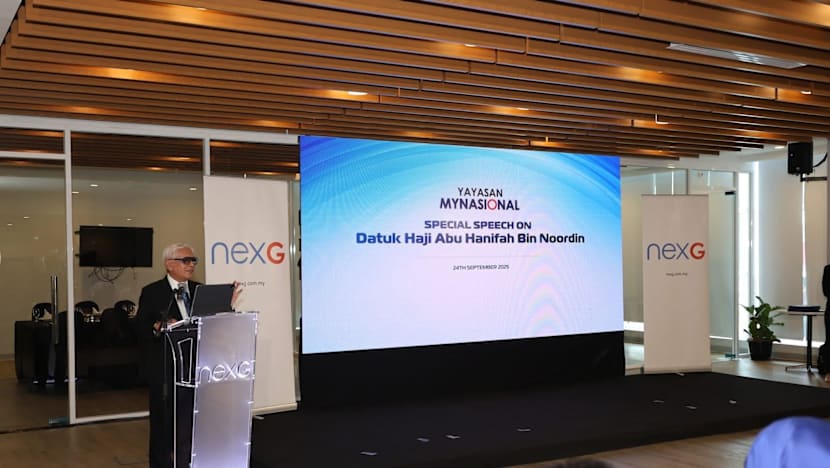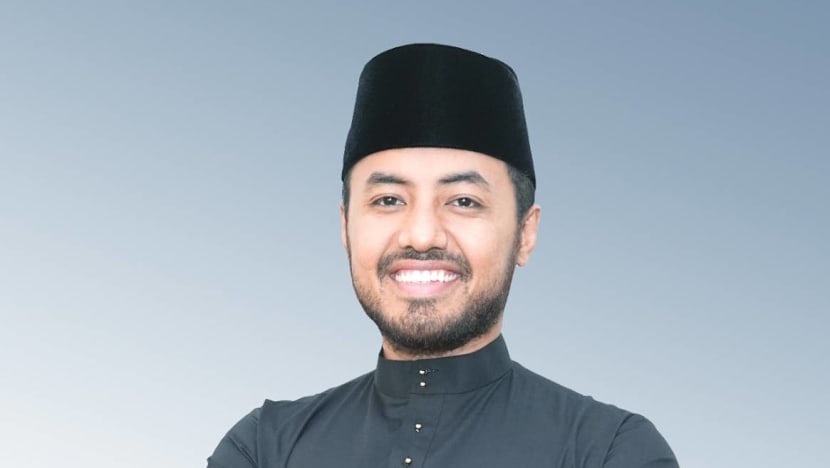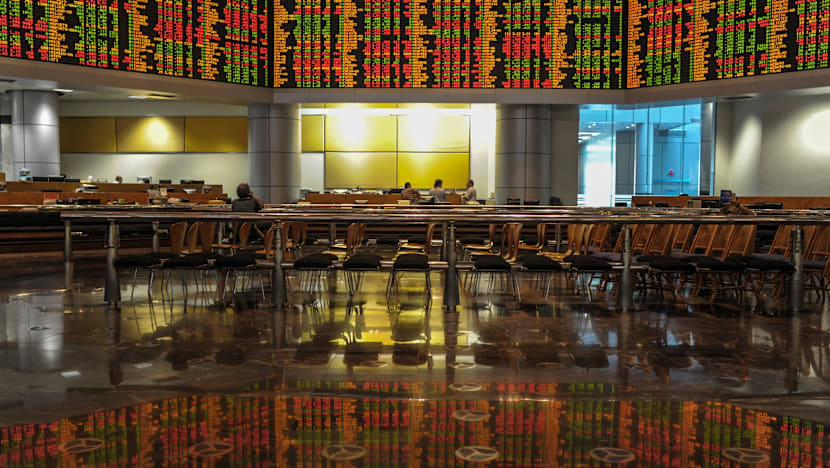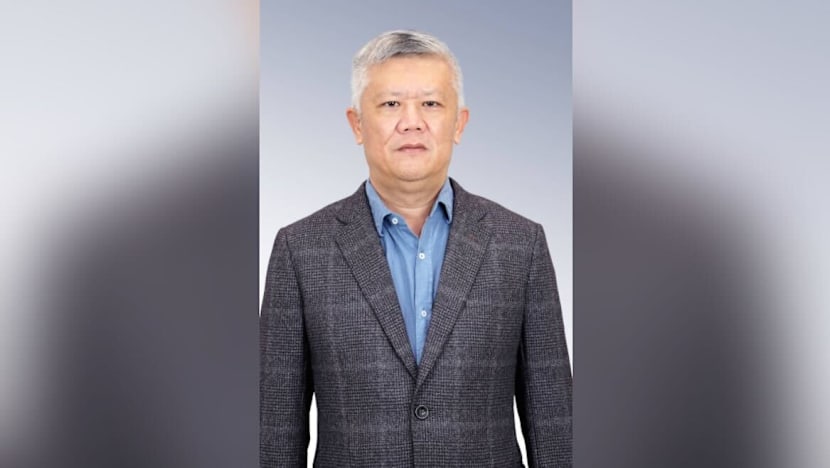exclusive Asia
2 Anwar acolytes spar over government’s tech provider NexG; insiders warn of messy shareholder war
The two involved are Ishak Ismail, a veteran corporate figure and a long-time operative for Prime Minister Anwar Ibrahim; and Farhash Wafa Salvador, a former senior aide to Anwar who has positioned himself as one of corporate Malaysia’s fastest-rising players, say insiders.

NexG's executive chairman and CEO Abu Hanifah Noordin speaking at an event on Sep 24, 2025. (File Photo: Facebook/NexG Berhad)

This audio is generated by an AI tool.
KUALA LUMPUR: NexG — the Malaysian government’s primary technology solutions provider — has quietly become the centre of a high-stakes corporate confrontation, one that now pits two close allies of Prime Minister Anwar Ibrahim against each other in a contest for control.
What began as a quiet reshuffling of shareholdings has escalated into a power struggle with political, financial and regulatory implications.
On one side is Ishak Ismail, a corporate veteran and long-time member of Anwar’s inner circle of advisors. A staunch political supporter of Anwar since the early 1980s, he recently acquired a strategic equity interest in NexG.
Opposing him is Farhash Wafa Salvador Rizal Mubarak, a former senior Anwar aide who, in just three years, has positioned himself as one of corporate Malaysia’s fastest-rising players through a series of board appointments and strategic stakes in publicly listed companies.
Shortly after Anwar was appointed as premier in 2022, Farhash left his position as political secretary to the then-opposition leader to pursue interests in the business world. He was appointed to the boards of companies, such as publicly listed Apex Equity Holdings and Berjaya Construction, which is controlled by tycoon Vincent Tan Chee Yioun.
While he holds no official position in Anwar’s Parti Keadilan Rakyat, government sources noted that Farhash remains an influential figure in the premier’s group of close-knit advisors.
Senior financial executives directly involved in recent share transactions told CNA that Ishak, 66, has quietly amassed a 25 per cent stake in NexG, in a deal valued at roughly RM300 million (US$72.35m).

Although Ishak’s acquisition has not been publicly disclosed, his sudden emergence as a major shareholder has triggered unease — and in some quarters, open resistance — among groups aligned with Farhash, who has been manoeuvring to consolidate influence over the company, the financial executives noted.
Farhash, who is 43 years old, holds no direct stake in NexG. However, he owns 20 per cent of MMAG Holdings, a publicly listed logistics firm in which NexG itself owns a 10 per cent interest.
This web of cross-linkages has enabled his allies to exert leverage within NexG despite his lack of direct shareholding, financial executives close to the situation said.
At its current trading price of RM0.38 a share, NexG has a market capitalisation of RM1.37 billion.
In this case where the shareholding remains fluid and Ishak has yet to stamp his authority as a 25 per cent shareholder, the insiders say Farhash and his proxies can control the company by appointing directors to the NexG board.
In recent days, individuals aligned with Farhash have pushed through new board appointments at NexG and initiated a sweeping audit into certain transactions undertaken by the company’s previous shareholders — a move that some executives view as part of a larger strategy to counter Ishak’s entry.
These included the appointment of Chong Loong Men and Aswath Ramakrishnan, both lawyers, as new directors. Also appointed was accountant Kunal Tayal. Investment analysts tracking the situation said the three new directors are considered to be close associates of Farhash.
Stockbroking sources close to NexG said the new directors met for an emergency board meeting on Wednesday (Nov 19) to discuss the appointment of independent forensic auditors to review the transactions undertaken by the company’s previous shareholders.

According to the sources the transactions include NexG’s dealings with NexG Bina, which was previously known as Classita Holdings, and Pixio.
Financial executives close to the situation say that unless Ishak and Farhash reach a compromise on how NexG should be jointly managed, the company is poised for a long and messy war between major shareholders over control of the firm.
“This has all the makings of a brass-knuckle corporate fight that Malaysia hasn’t seen in some time — and it’s drawing attention because of the politics involved,” said a senior stockbroker whose firm holds exposure to NexG-related counters on Bursa Malaysia.
Farhash did not respond to requests for comment. Ishak, currently part of a business delegation accompanying Anwar on an official visit to three African nations, declined to comment.
PENNY STOCKS
Beyond the political intrigue, the NexG saga, which CNA has pieced together through interviews with stockbrokers, bankers, and company executives, sheds rare light on the shadowy corners of the Malaysian stock market.
Once a destination for major domestic and foreign funds, the market has increasingly become a playground for operators who thrive on thinly traded, high-risk counters — and for whom opacity is a feature, not a flaw.

The developments around NexG also raise uncomfortable questions about Malaysia’s government procurement ecosystem, noted bankers and analysts.
Incorporated in 2008 as Datasonic Group, the company was controlled by Abu Hanifah Noordin, a businessman who enjoyed close ties to former premier Muhyiddin Yassin.
Datasonic was listed on Bursa Malaysia in 2012 and became a central player in the country’s border-security systems, supplying the government smart identification cards for Malaysian citizens, passport chips and other high-security personalisation solutions.
The company underwent numerous shareholding changes over the years and in February this year was rebranded as NexG. It currently sits in a web of companies interconnected through convoluted cross-holdings involving a wide network of corporate personalities.
At the centre of this network is Victor Chin Boon Long, a businessman whose operations revolve around what are commonly known as penny stocks — publicly listed companies that trade below RM0.50. NexG last traded at RM0.38.
These counters are defined by volatility, low liquidity, and the absence of meaningful institutional participation.
Large domestic and foreign funds generally avoid them, leaving retail investors — often driven by rumour and speculation — as the primary participants.
HOW IT ALL BEGAN
Chin’s move to bring Farhash into his corporate orbit in March this year — by installing him as a shareholder of MMAG — immediately caught the attention of small-time investors, who are often drawn to counters with a political edge.
This year alone, NexG has secured several new and extended government contracts.
These include an 18-month extension from the Home Ministry for the supply of foreign worker cards, a six-year contract to supply Malaysian passports and identity cards, and an expanded scope of work to produce driving licence cards for the Road Transport Department.

According to financial executives closely tracking developments at NexG, relations between Chin and Farhash began to deteriorate soon after, which has prompted the former to seek out other potential buyers for the firm.
A series of deals NexG had entered into under Chin’s instruction had begun drawing scrutiny from Malaysian authorities.
Senior executives familiar with the situation said that sometime last month, Chin left the country to avoid possible detention and began quietly shopping for buyers for his corporate holdings.
It was against this backdrop that Ishak moved in, noted stockbrokers and financial executives familiar with the shareholding change at NexG.
Last week, he entered into several transactions to acquire stakes in NexG controlled by Chin and his corporate proxies.
According to financial executives involved in the deals and documents that CNA has reviewed, the shares were purchased through private companies, including Trentrove Trading and Skylimit Alliance.
On Nov 17, NexG announced that Chin, who was also the company’s chief operating officer, had resigned together with long-time associate Jorrine Ang Pei Gaik, who served as the chief strategy officer. NexG did not disclose reasons why the two executives left the company.
CORPORATE COMEBACK
Ishak’s re-emergence in NexG is being closely monitored in the banking and financial industry, according to bankers and stockbrokers who spoke to CNA
In the 1990s, Ishak ranked among Malaysia’s most aggressive corporate players, frequently surfacing as a key figure in the takeover of publicly listed companies and as a beneficiary of government concessions awarded under Malaysia’s privatisation programme, including rights to operate the national waste water management under a company called Indah Water.
His close association with Anwar — who served as finance minister and deputy prime minister under the administration led by Mahathir Mohamad during that period — made him a sought-after business partner.
Ishak is best known for his control of the fast-food franchise operator Kentucky Fried Chicken through the listed vehicle KFC Holdings. He also held significant stakes in companies such as Idris Hydraulic and Aokam Perdana.
But his fortunes declined after Anwar was sacked from government following a bitter fallout with Mahathir over how to steer the country through the economic turmoil triggered by the Asian Financial Crisis in 1997.
In recent years, Ishak has maintained a low public profile, concentrating mainly on managing his personal wealth and dabbling with investments in neighbouring Indonesia.
Business and politics have long been intertwined in Malaysia and Ishak’s comeback is viewed by some as a signal of more corporate manoeuvres by businessmen who were previously targeted by the political establishment when Anwar was removed in September 1998.
One businessman, who declined to be named and knows Ishak well, noted that the latter would have only acquired the interests in NexG with the tacit approval from PM Anwar.
“Ishak is cautious because he knows what can happen when the political situation turns sour. He must have Anwar’s blessings,” said the businessman.


















